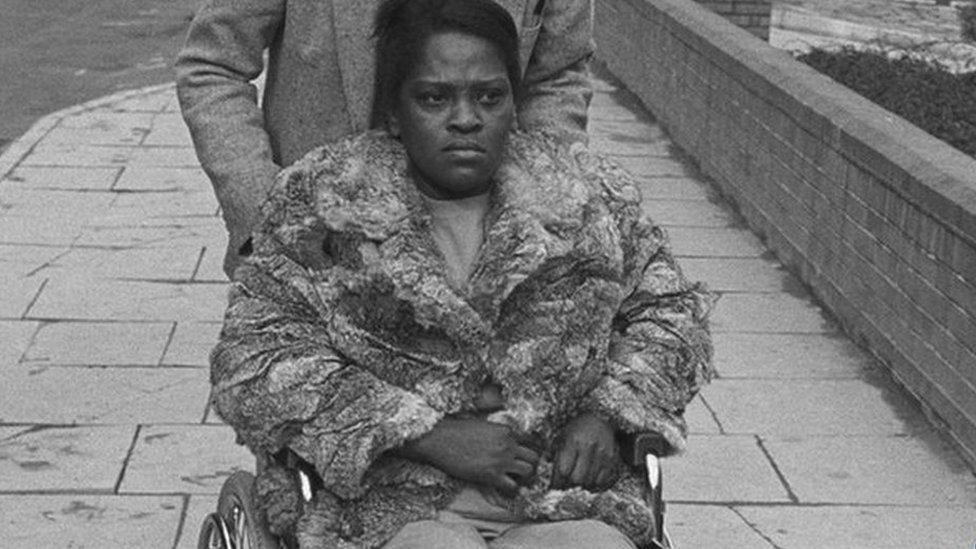Cherry Groce: Memorial unveiled for Brixton police shooting victim
- Published
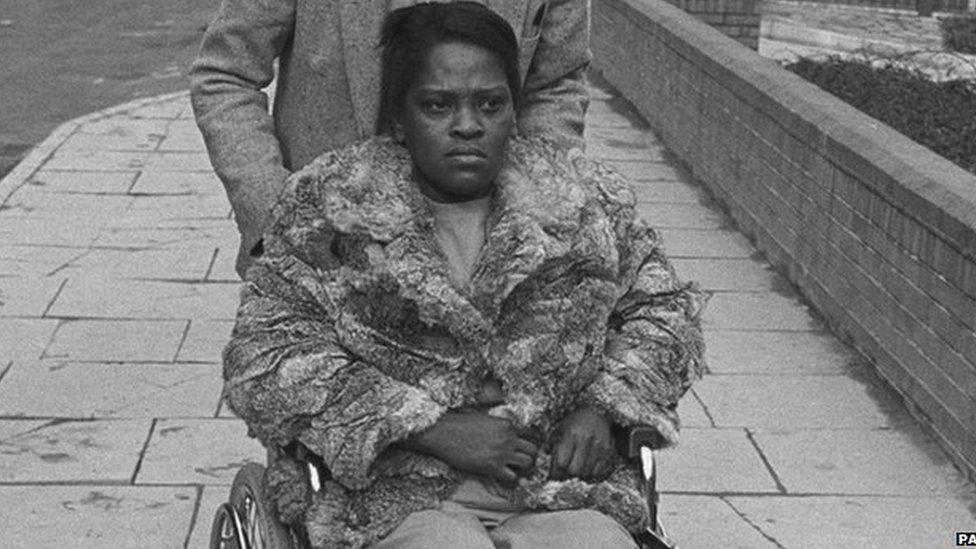
Cherry Groce died in April 2011, having spent 26 years in a wheelchair
A memorial to a woman paralysed from the waist down after being shot in a police raid in 1985 has been unveiled.
Cherry Groce died in April 2011 having spent 26 years in a wheelchair after being shot during a raid on her home. The shooting sparked rioting in Brixton at the time.
The statue was unveiled at Windrush Square earlier - 35 and a half years after her shooting.
Due to Covid-19 restrictions, the event was live streamed online.
The broadcast featured 15 official guests, including Mrs Groce's family.
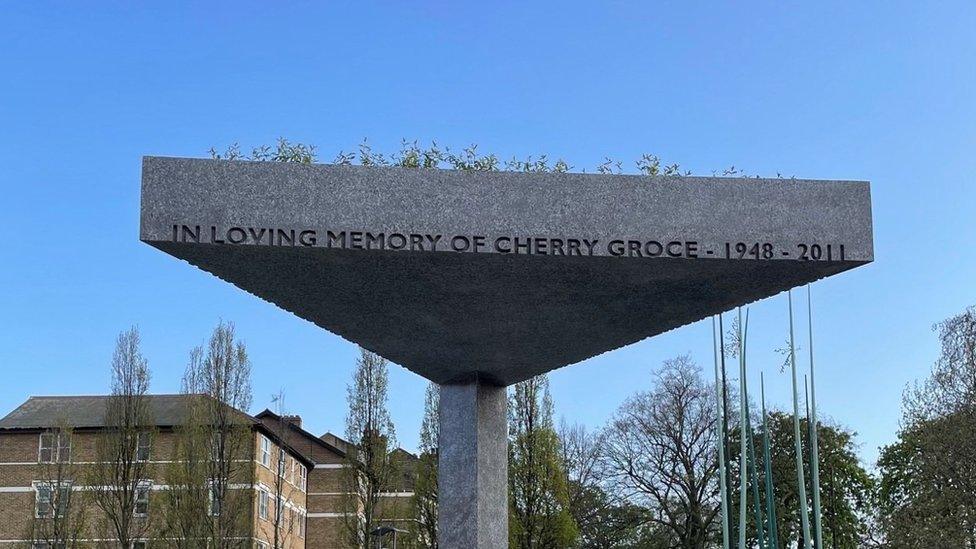
The sculpture has been built in Windrush Square, Brixton
Dorothy "Cherry" Groce, was 37 when she was shot in the shoulder by Insp Douglas Lovelock.
Police had raided her home looking for her son Michael, who was wanted in connection with an armed robbery.
He was never charged in connection with that or the riot which followed his mother's shooting.
Two days of riots ensued as the community protested institutional racism and systemic injustice faced by black people.
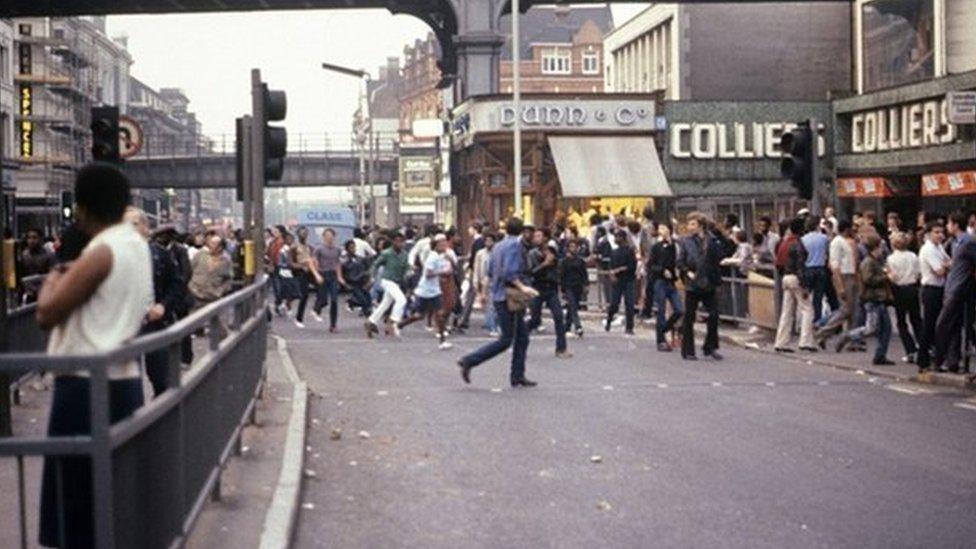
Dozens of people were injured in the unrest in Brixton, which followed the shooting
In 2011, Mrs Groce contracted an infection which led to kidney failure, and she passed away on Easter Sunday.
In March 2014, the Met Police apologised for the wrongful shooting. In July of that year, an inquest jury concluded that eight police failures had led to Mrs Groce's death.
The installation, designed by architect Sir David Adjaye, was organised and funded by the council in partnership with the Groce family and Adjaye Associates.
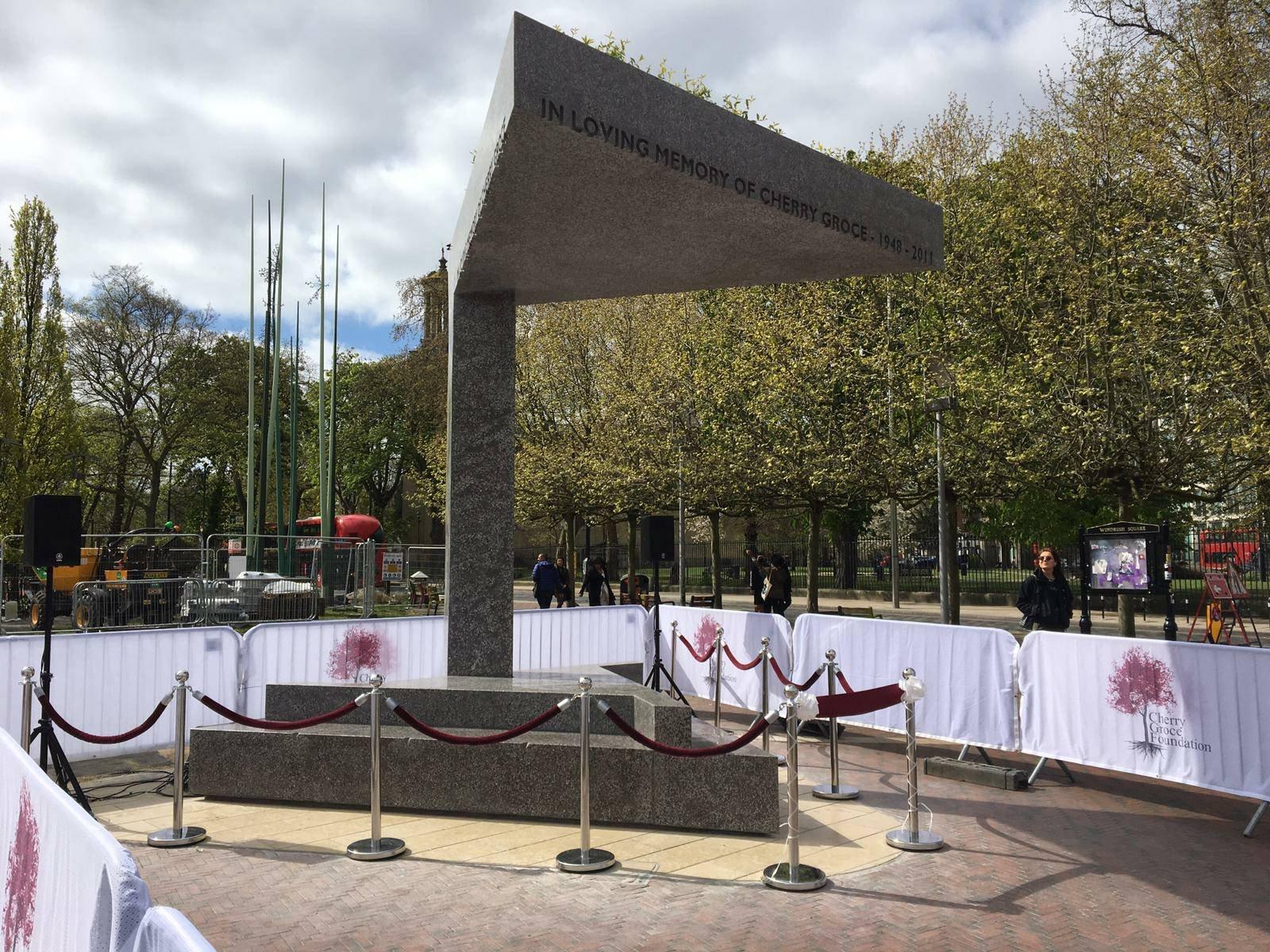
Lee Lawrence: "The unveiling of the memorial is a fitting tribute to my mother and to our community"
Mrs Groce's son, Lee Lawrence, said: "The unveiling of the memorial is a fitting tribute to my mother and to our community.
"The injustice done to my mother on 28 September, 1985 and its aftermath, catalysed our community to act together relentlessly and persistently in the pursuit of justice for more than three decades.
"Our achievements together in that effort can inspire us to continue to work together to make justice a reality across our society."
Related topics
- Published1 July 2014
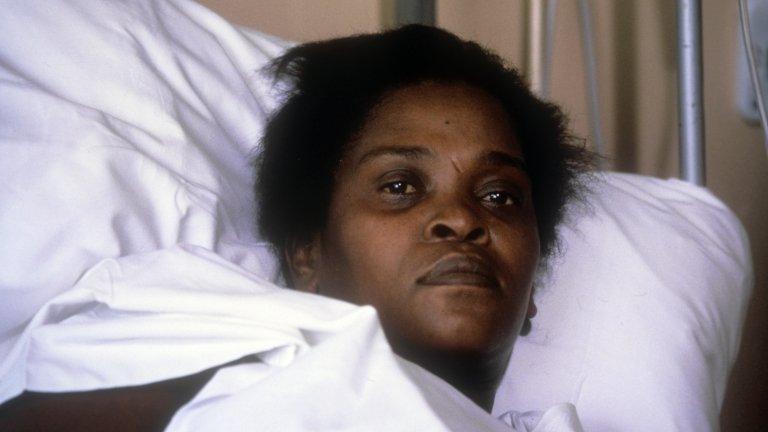
- Published22 March 2014
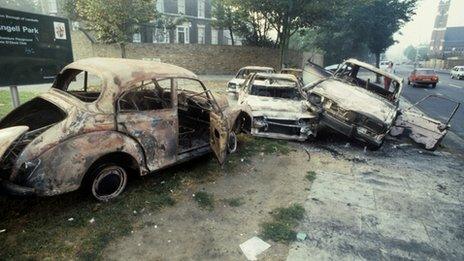
- Published10 July 2014
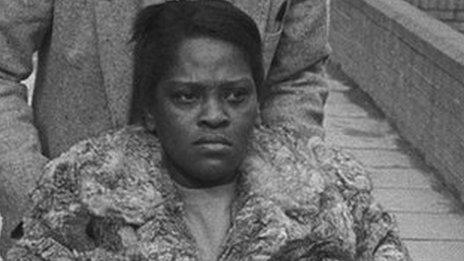
- Published1 July 2020
